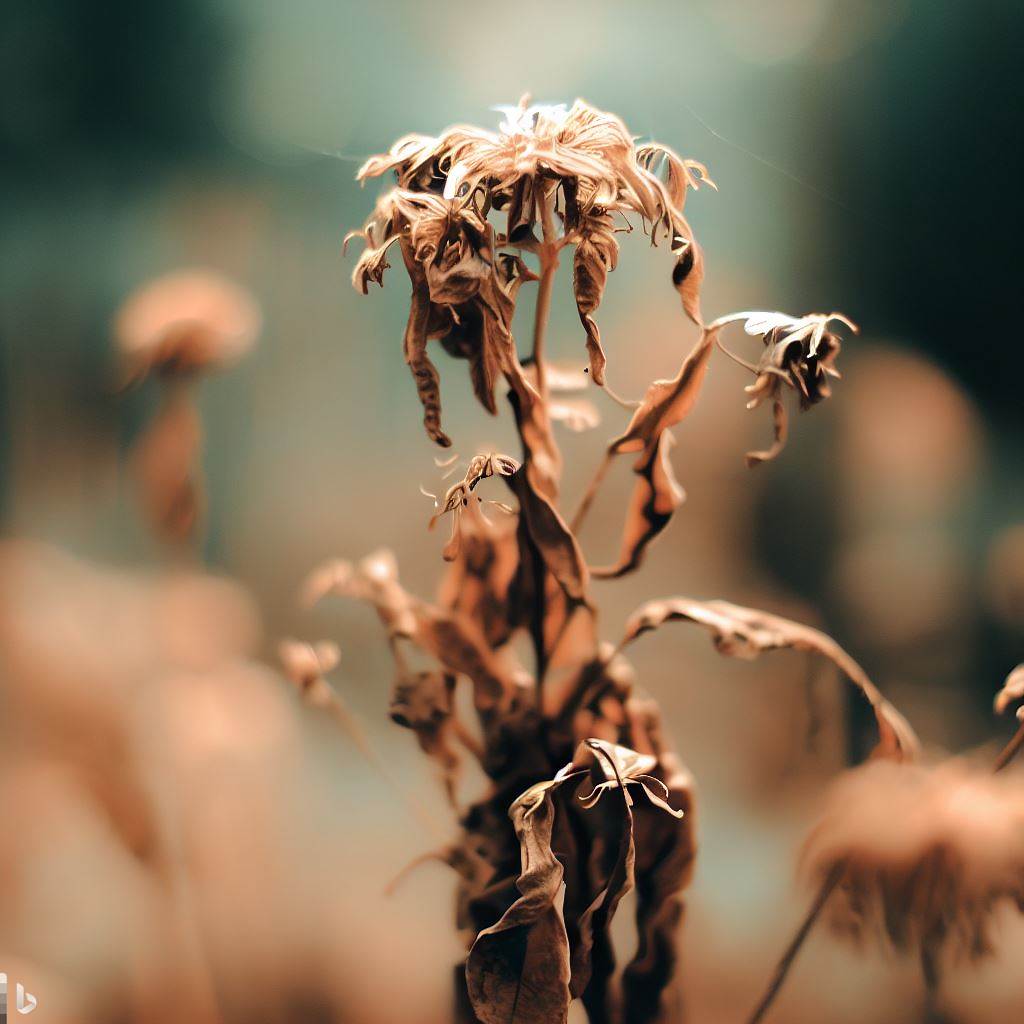Do weeds die in summer? Well, wouldn’t we all love to sip on lemonade while watching those pesky garden invaders wilt away under the hot sun? But hold onto your gardening gloves folks, because you might not like what I’m about to say. The answer isn’t quite as simple as a yes or no.
Weeds are peculiar creatures. Just when we think we’ve got them figured out – bam! They surprise us with their resilience. In fact, most common weeds don’t just survive the heat of summer…they thrive in it! Now there’s a plot twist for you!

So prepare yourself for an enlightening journey into the world of weeds in summer. You’ll discover unexpected facts and useful tips that can turn any green thumb into a weed-busting maestro! Because let’s face it, nothing feels better than winning at tug-of-war against those relentless roots.
Here is an article you might be interested in do you take the casing off of brats
Here is also another exciting article to read doe pee spray
Factors Affecting Weed Growth and Survival in Summer
Before we dive into the nitty-gritty of weed control in summer, it’s crucial to understand what factors influence their growth and survival during this scorching season.
Impact of High Temperatures on Weeds
Just like humans seek shelter from sweltering heat waves under shady trees or air-conditioned havens, weeds also find ways to cope with high temperatures. They may not exactly thrive in extreme heat but are surprisingly resilient creatures.
Some species have developed mechanisms such as deep root systems or protective coatings on leaves that help them withstand soaring mercury levels.
Effects of Drought Stress on Weeds during Summer
It’s no secret that water is life for all living organisms, including those unwelcome guests called weeds. However, they possess hidden superpowers when it comes to surviving drought stress.
While other plants struggle under arid conditions due to lack of moisture supply, some weeds can conserve water through minimal leaf surface area or even change their stomatal behavior.
The Role of Light Intensity in Weed Survival
We all know that sunlight is essential for plant growth through photosynthesis. Well, guess what? Weeds love basking in the sun too! They have a knack for utilizing high light intensities to their advantage.
Additionally, some weeds can alter their growth patterns and tilt towards better sources of light, ensuring they get their fair share of solar energy.
Adaptation Strategies of Weeds to Resist Heat and Dry Conditions
Nature never fails to amaze us with its ability to adapt. Weeds are living proof of this resilience, as they have evolved numerous strategies over time to resist harsh summer conditions.
From developing waxy coatings on leaves that minimize water loss to altering their metabolism and photosynthetic processes, these little troublemakers have become masters at surviving even the harshest climates.
Influence of Soil Condition and Fertility on Weed Resilience
Weed growth is not solely dependent on environmental factors; soil quality plays a significant role too. While fertile soil provides an ideal breeding ground for weeds due to higher nutrient availability, poor soil conditions can also favor these persistent plants.
Compacted soil or low fertility levels may weaken desirable plants while giving weeds an advantage in terms of root penetration and resource acquisition.
Management Techniques for Controlling Summer Weeds
Now that we’ve unraveled the secrets behind weed survival tactics in summer let’s explore effective management techniques for keeping them at bay during this challenging season.
1. Applying a thick layer of organic mulch around your plants helps smother weed seeds by blocking sunlight from reaching the soil surface where they lie dormant.
2. Don’t wait until you’re knee-deep in unruly weeds before taking action! Consistent mowing, hand-pulling, or using appropriate gardening tools ensures that young weeds don’t have a chance to establish themselves.
3. Watering your garden deeply but infrequently encourages the growth of deep-rooted desirable plants, making it harder for shallow-rooted weeds to compete.
4. When used responsibly and according to label instructions, herbicides can be effective in weed control. Selective herbicides target specific weed species while sparing desired plants, while non-selective ones are best for spot treatments or when starting from scratch.
Implications on Garden Health Due to Overgrowth or Death of Weeds in Summer
Now that we’ve covered the mechanisms behind weeds’ survival strategies and methods for controlling them, let’s take a moment to understand how their presence or absence can impact your garden’s overall health.

Ecological Balance
Weeds may seem like nothing more than a nuisance, but they play a crucial role in maintaining ecological balance. Some weeds provide habitat and food sources for beneficial insects like bees and butterflies.
Eliminating all weeds without discrimination could disrupt this delicate balance and harm those creatures that contribute to pollination and biodiversity.
Nutrient Competition
Uncontrolled weed growth can lead to intense competition for essential nutrients with desirable plants in your garden. This battle for resources may result in stunted growth or even death of your beloved flowers, fruits, or vegetables.
By managing summer weeds effectively, you ensure that your prized plants receive the nourishment they need to flourish.
Summary
Do not underestimate the power of summer sunshine when it comes to weed control – those pesky little invaders are remarkable survivors!
However daunting their resilience might be, armed with knowledge about their survival tactics and effective management techniques such as mulching regular maintenance watering techniques irrigation techniques herbicide application – selectiveness groundskeeping tools.
With these strategies up your sleeve, you can keep our gardens looking pristine throughout the scorching summer months. So embrace the challenge head-on because there’s no time for weeds when there’s so much summer fun to be had!
Read another exciting blog post here does doe urine go bad
This is the article to read for today does human urine repel bears
FAQs
Q: Do weeds die in summer?
A: Yes, weeds can die in the summer, but it depends on the type of weed and the local climate. Some weeds, known as summer annuals, have a life cycle that allows them to survive and thrive during the summer months. Others, such as winter annuals, may die off in the summer if they have completed their life cycle. However, it’s important to note that even if weeds die in the summer, they can still produce seeds that will germinate and grow new weeds the following year.
Q: What is an annual weed?
A: An annual weed is a type of weed that completes its life cycle within a single growing season. These weeds germinate from seeds, grow, produce flowers and seeds, and then die all within one year. Some common summer annual weeds include crabgrass, spurge, purslane, and foxtail.
Q: Can weeds grow in the summer?
A: Yes, weeds can definitely grow in the summer. In fact, the warm temperatures and longer days are ideal conditions for many weeds to thrive. Weeds such as crabgrass, spurge, and purslane are known for thriving in the heat of summer. It’s important to actively manage and control weeds throughout the summer to prevent them from taking over your lawn or garden.
Q: How do summer annual weeds germinate?
A: Summer annual weeds germinate from seeds that are present in the soil. These seeds can lay dormant during the winter and germinate in the spring or early summer when soil temperatures are warm enough. Once they germinate, they grow rapidly and can quickly become a problem if left untreated.
Q: Do summer annual weeds die after one season?
A: Yes, summer annual weeds typically die after one season. They complete their life cycle, which includes germination, growth, flowering, seed production, and eventually death. However, keep in mind that these weeds can leave behind a plethora of seeds that may germinate the following spring or summer, leading to new plants.
Q: How can I manage summer annual weeds?
A: Managing summer annual weeds involves a combination of preventive and post-emergent weed control methods. Preventive measures include maintaining a healthy lawn or garden, watering and fertilizing properly, and employing strategies to prevent weeds from germinating, such as using mulch. Post-emergent approaches include hand pulling or using herbicides to effectively eliminate existing weeds.
Q: Are all summer annual weeds broadleaf weeds?
A: No, not all summer annual weeds are broadleaf weeds. While broadleaf weeds are common summer annuals like spurge and purslane, there are also grassy weeds like crabgrass and foxtail that fall into the summer annual category. It’s important to identify and target these specific types of weeds for effective control.
Q: What is the difference between summer annuals and winter annuals?
A: The main difference between summer annuals and winter annuals lies in their life cycle and the time at which they germinate. Summer annuals germinate from seeds in the spring or early summer, grow throughout the summer, and die with the first frost in the fall. Winter annuals, on the other hand, germinate in the fall, grow during the winter months, flower in the spring, and die in early summer.
Q: Can weeds die after the first frost in summer?
A: Typically, weeds in summer will not die after the first frost. While some cold-sensitive annual weeds may be killed by a frost, most summer annuals have already completed their life cycle and will have dispersed seeds to ensure the next generation of weeds.
Q: How can I prevent weeds from growing in the summer?
A: To prevent weeds from growing in the summer, it’s important to take proactive measures. These include maintaining a thick and healthy lawn or garden, applying pre-emergent herbicides, removing weeds by hand as soon as they appear, and regularly inspecting and treating any new weeds that emerge throughout the season.